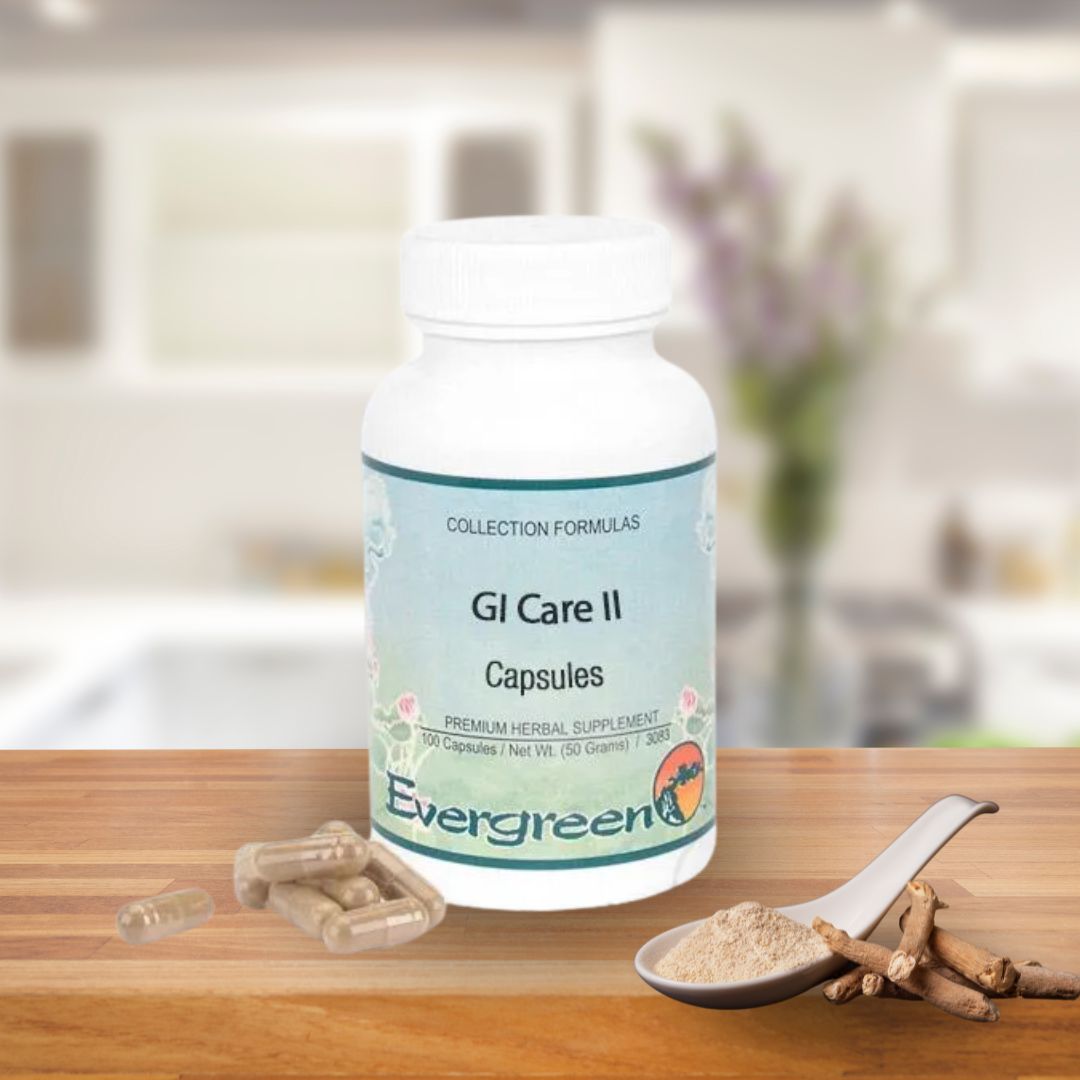1
/
of
1
ORGANIC QI
GI Care II
GI Care II
Regular price
$25.36 USD
Regular price
Sale price
$25.36 USD
Unit price
/
per
Couldn't load pickup availability
Clinical Applications
Clinical Applications
- GI infection and inflammation: traveler‘s diarrhea, gastroenteritis, enteritis, dysentery, food poisoning and other gastrointestinal disorders with diarrhea, foul-smelling stools with burning sensations of the anus, abdominal discomfort, pain, borborygmus, possibly nausea, vomiting and a feeling of incomplete defecation
- GI disorders with damp-heat
- All excess types of diarrhea characterized by heat and dampness
- Monosodium glutamate (MSG) poisoning
Actions
Actions
- Treats diarrhea, dysentery, enteritis, stomach flu, and other gastrointestinal disorders
- Antibiotic effect to treat acute diarrhea due to bacterial or viral infection
- Antitoxic effect to treat acute diarrhea due to drug or food poisoning
- Gastroprotective benefit to treat acute diarrhea with mucus or blood present in the stools
- Alleviates the signs and symptoms of acute diarrhea, such as nausea, vomiting, abdominal pain, intestinal cramps and spasms, and fever
Cautions and Contra-Indications
Cautions and Contra-Indications
- This formula is contraindicated for patients who have diarrhea caused by deficiency and cold, Spleen qi deficiency, or Spleen and Kidney yang deficiencies.
- This formula is contraindicated for patients who are pregnant or nursing.
- Allergy warning: Shen Qu (Massa Fermentata) used in this product contains wheat. Persons with allergy to wheat should not take this product.
- This herbal formula contains herbs that invigorate blood circulation, such as Dang Gui (Radix Angelicae Sinensis). Therefore, patients who are on anticoagulant or antiplatelet therapies, such as Coumadin (warfarin), should use this formula with caution, or not at all, as there may be a higher risk of bleeding and bruising.
The following warning statement is required by the State of California: ―This product contains Da Huang (Radix et Rhizoma Rhei). Read and follow directions carefully.
Do not use if you have or develop diarrhea, loose stools, or abdominal pain because Da Huang (Radix et Rhizoma Rhei) may worsen these conditions and be harmful to
your health. Consult your physician if you have frequent diarrhea or if you are pregnant, nursing, taking medication, or have a medical condition.‖
Nutrition and Lifestyle Instructions
Nutrition and Lifestyle Instructions
- Patients with diarrhea should keep taking in plenty of pure water and appropriate foods to prevent dehydration and malnutrition.
- During the recovery phase of diarrhea, eat foods that are easy to digest early in the meal, such as soup, porridge, and cooked fruits and vegetables.
- Avoid foods that may trigger diarrhea or are hard to digest, such as sorbitol, dairy products, spicy food, alcohol, and caffeine.
- Avoid eating raw, cold or unsanitary food and beverages.
- Use a separate chopping board to prepare raw foods and fruits to prevent contamination with other foods.
- Do not eat foods with refined sugar during the recovery phase, especially if the diarrhea is caused by bacterial infection.
- Incorporate probiotics into the diet. Different strands of probiotics should be taken while on herbs. At least double or triple the normal recommended dosage.
- Remind patients of the importance of washing their hands prior to eating.
- Patients with intestinal disturbance due to stress should engage in regular exercise, adequate rest, and normal sleep patterns. Practicing meditation exercises at least twice daily will also be beneficial. Get away from the daily routine to do something enjoyable to relieve stress whenever possible.
- Relax, rest and drink plenty of water until the condition clears up.
Dosage
Dosage
Take 3 to 4 capsules three times daily on an empty stomach, with warm water. Dosage may be increased to 6 to 8 capsules three times daily, if necessary. Herbs should be taken for at least seven days in cases of acute infection to completely expel the pathogens.
Ingredients
Ingredients
- Radix Paeoniae Alba
- Radix Angelicae Dahuricae
- Rhizoma Atractylodis Macrocephalae
- Pericarpium Citri Reticulatae
- Radix Vladimiriae
- Cortex Ailanthi
- Radix et Rhizoma Rhei
- Fructus Jujubae
- Radix Angelicae Sinensis
- Poria
- Radix et Rhizoma Glycyrrhizae
- Radix Puerariae Lobatae
- Herba Pogostemonis
- Cortex Magnoliae Officinalis
- Rhizoma Coptidis
- Radix Scutellariae
- Radix Platycodonis
- Pericarpium Citri Reticulatae Viride
- Cortex Cinnamomi
- Massa Fermentata
- Rhizoma Zingiberis Recens
- Galla Chinensis
- Fructus Aurantii
- Folium Perillae
Share


